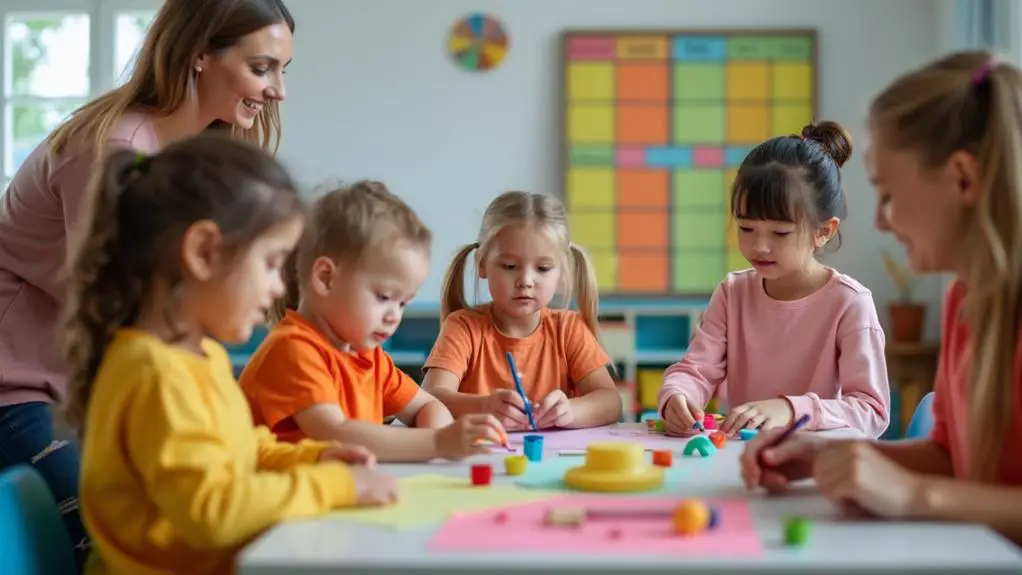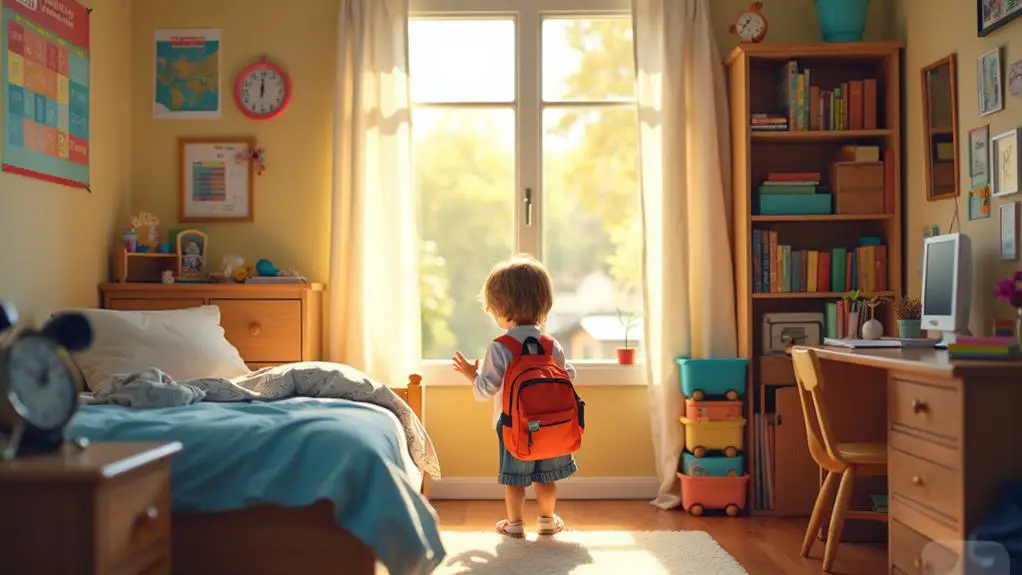The Importance of Routine in Child Development
As a parent and child development specialist, I've seen firsthand how routine shapes young minds. It's fascinating to observe children thrive in structured environments, developing emotional security and self-regulation skills that will serve them throughout life. While many parents understand the importance of bedtime routines, they often overlook the profound impact of consistent daily patterns on their child's social development and long-term health habits. But there's more to this story than meets the eye. The benefits of routine extend far beyond simple time management, influencing a child's resilience and adaptability in ways that might surprise you.
Key Takeaways
- Routines build emotional security by creating predictable environments and fostering trust in caregivers.
- Consistent daily patterns help children develop self-regulation skills and time management abilities.
- Structured activities enhance social development by providing regular opportunities for peer and caregiver interaction.
- Predictable routines support the establishment of lifelong healthy habits, including proper nutrition and sleep patterns.
- Familiarity with routines reduces anxiety and distractions, allowing children to focus on learning and exploration.
Building Emotional Security
Routines play an essential role in building emotional security for children.
I've observed that consistent daily patterns provide a predictable framework, fostering a sense of safety important for healthy development. When children experience familiar routines, they develop trust in their caregivers, which is fundamental for forming secure attachments.
I've noticed that structured routines greatly reduce anxiety in children by setting clear expectations for behavior and outcomes. This emotional security enhances their ability to confidently explore their environment and engage in social interactions.
It's fascinating to see how children who experience consistent routines are better equipped to handle unexpected changes, drawing from their solid foundation of security.
In my experience, the emotional stability developed through routines is crucial for children's overall well-being and social skills development.
It's clear that predictable patterns in daily activities contribute greatly to a child's sense of emotional security.
Fostering Self-Regulation Skills
Building upon the foundation of emotional security, consistent routines play a vital role in fostering self-regulation skills. I've observed that predictable environments create a secure environment where children learn to anticipate and prepare for daily activities. This consistency promotes emotional stability, allowing kids to focus on play and exploration.
Structured routines contribute to child development in three key ways:
- Gradual acquisition of self-discipline
- Reduction of anxiety and stress levels
- Enhanced ability to handle life changes
As children engage in consistent practice of routines, they develop essential self-regulation skills. I've noticed that this familiarity helps reduce distractions, creating an ideal setting for learning time management and task completion.
Furthermore, the skills gained through structured routines equip children to adapt and cope with challenges, fostering resilience in their overall development.
Enhancing Social Development

Beyond fostering self-regulation, consistent routines play a key role in enhancing children's social development. I've observed how these structured activities provide regular opportunities for kids to engage with peers and caregivers, building strong relationships. Routines encourage cooperative behavior, teaching children to share and communicate effectively.
| Social Benefits | Emotional Benefits |
|---|---|
| Peer engagement | Sense of belonging |
| Cooperative skills | Increased confidence |
| Communication | Emotional connections |
| Interaction patterns | Security |
The familiarity of daily routines boosts children's confidence in social settings, allowing them to navigate interactions more easily. I've noticed that emotional connections are strengthened through shared activities, promoting a sense of belonging within families. Predictable routines help children develop essential social interaction patterns, such as greetings and polite conversation, which are vital for successful relationships. These experiences form the foundation for lifelong social skills and emotional well-being.
Establishing Lifelong Healthy Habits
A critical aspect of child development is the formation of lifelong healthy habits through consistent routines. I've observed that children thrive on predictability, which helps them internalize positive behaviors and develop self-discipline.
By establishing structured routines, we're setting the stage for their emotional development and fostering a sense of security.
Routines play a vital role in:
- Supporting physical health through regular meals and adequate sleep
- Enhancing academic performance by creating consistent homework habits
- Cultivating independence by encouraging ownership of responsibilities
I've found that children who engage in structured routines are more likely to develop strong self-regulation skills, leading to better long-term success.
Conclusion
I've seen firsthand how routines shape a child's world. They're not just schedules; they're the building blocks of security, self-control, and social skills. As a parent, I've watched my kids thrive with consistent daily patterns. They've learned to manage time, take responsibility, and adapt to change. I'm convinced that by establishing these routines early, I'm setting my children up for a lifetime of success and well-being. It's a simple yet powerful tool in parenting.







